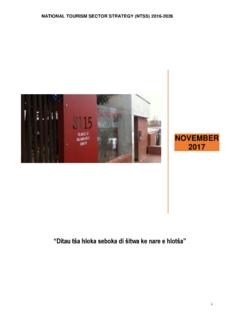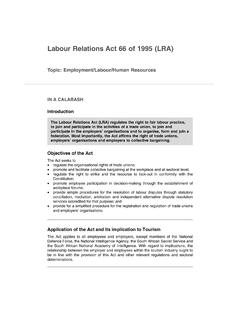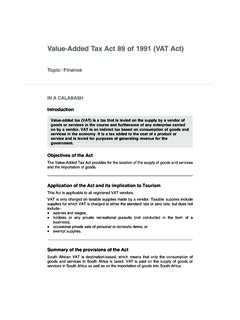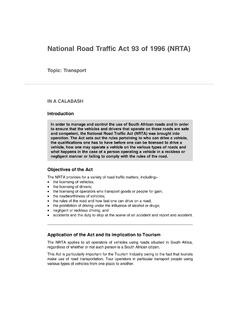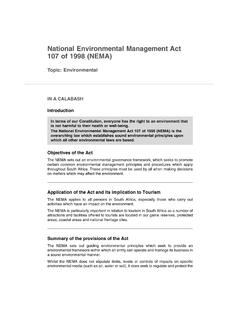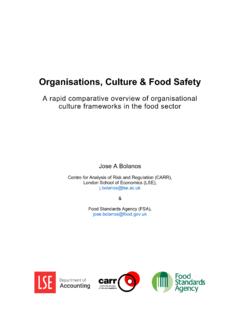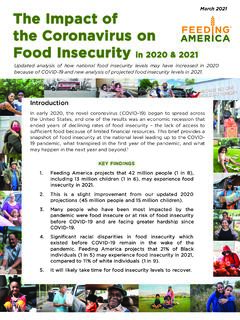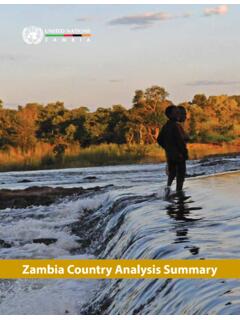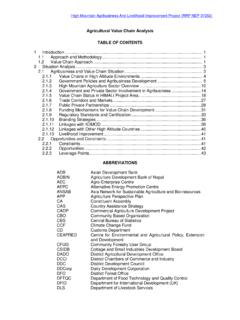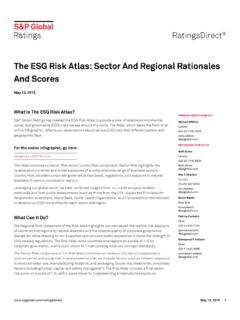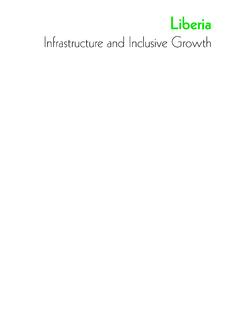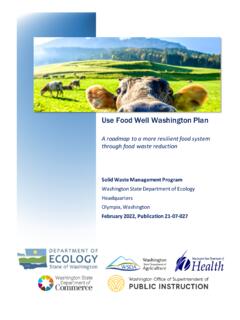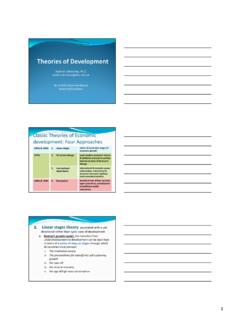Transcription of Final report: The Impact of COVID-19 on Tourism Sector ...
1 Final report: The Impact of COVID-19 on Tourism Sector Demand and Supply in South Africa University of Johannesburg Date: March 2021. University of Johannesburg Date: Table of contents List of Abbreviations Executive Summary 1. Introduction and Background 2. Rationale of Study 3. Problem Statement 4. Purpose of Study 5. Research Questions 6. Objectives of Study 7. Theoretical Context and Literature 8. Research Design and Methodology 9. Demand-Side Research 10. Supply-Side Research 11. Addressing Study Objectives 12. The Case Study Areas 13. Findings: Demand-Side Analysis 14. Findings: Supply-Side Analysis 15.
2 Recommendations 16. Limitations 17. Conclusion References Appendix 1. List of Abbreviations AIEST International Association of Scientific Experts in Tourism BEE . Black Economic Empowerment COVID-19 Coronavirus Disease DSTV .. Digital Satellite Television Service GDP Gross Domestic Product ILO International Labour Organisation MERS Middle East Respiratory Syndrome MICE . Meetings, Incentives, Conferences and Exhibitions NFTGA .. National Federation of Tourist Guides and Affiliates OECD .. Organisation for Economic Cooperation and Development PATS . Pandemic Anxiety Travel Scale SARS Severe Acute Respiratory Syndrome SDG.
3 United Nations Sustainable Development Goal SMME . Small, Medium and Micro-Enterprise TERS . Temporary Employer/Employee Relief Scheme TRINET .. Tourism Research Information Network UIF .. Unemployment Insurance Fund United Nations Conference on Trade and Development UNESCO . United Nations Educational, Scientific and Cultural Organisation UNWTO United Nations World Tourism Organisation USA .. United States of America VAT .. Value Added Tax VFR . Visiting Friends and Relatives 2. Executive Summary The 2020 COVID-19 pandemic is the third and greatest economic, financial and social shock of the 21 st century after 9/11 and the global financial crisis of 2008.
4 The outbreak has been labelled as a black- swan event' and likened to scenes reminiscent of World War Two as it causes turmoil across the world economy with adverse implications across nearly all sectors of activity and life. The hospitality and Tourism Sector , including commercial aviation, has experienced amongst the worst socio-economic impacts of the pandemic. In looking forward two differing narratives or schools of thought are emerging in contemporary Tourism debates about COVID-19 . Both narratives highlight the seriousness of the COVID-19 pandemic for global Tourism albeit differ in terms of what comes or should come next.
5 First, is a resilience school of thought' which stresses the historical capacity of the Tourism Sector to cope with or adapt to shocks such as the global financial crisis, SARS, or natural events such as earthquakes or tsunamis. The emphasis is upon the Sector 's capacity to return to pre-crisis growth paths. This perspective is one which is projected by much of the Tourism industry and the majority of national governments including by the Department of Tourism in South Africa. Second, is a readjustment school of thought' which emphasizes the need to re-think of the growth at all cost and volume at all cost growth path for Tourism which has dominated in recent years and in part is responsible for the current crisis.
6 For this second school COVID-19 is a watershed or turning point for Tourism and projects that its impacts will be irreversible as it will fundamentally shift the nature of Tourism and human mobility into the future. Therefore, according to several observers, the pandemic represents a paradigm shift in research on tourists' behaviour and decision-making because what was previously taken for granted may not hold in the COVID-19 era. In common with the rest of the world, the Tourism Sector of South Africa experienced the radical impacts of COVID-19 . Indeed, as is the situation across the world, the pandemic represents a crisis event that potentially is set to transform South Africa's Tourism Sector as well as the context in which it functions.
7 Arguably, the magnitude of the pandemic will reshape existing patterns of Tourism demand and supply which need to be understood and researched for designing appropriate policy interventions. Domestic Tourism is recognised as a beacon of hope and a catalyst for the recovery of the Tourism Sector as it reopens gradually post COVID-19 . This optimistic view on the domestic Sector necessitates that the country's role players reflect on opportunities and challenges that lie ahead to shape the Sector 's supply and demand in order to meet the needs of future domestic tourists. On this issue a knowledge gap exists and research is required to understand how COVID-19 has affected the supply and demand of Tourism products in South Africa.
8 This is essential to devise interventions that might address the needs of future 3. tourists, particularly domestic tourists, post COVID-19 . The unfolding negative effects of the pandemic are evidenced in the Tourism industry surveys conducted in 2020 by the Department of Tourism , Tourism Business Council of South Africa and International Finance Corporation. It is against the background of the rolling COVID-19 pandemic, its devastating impacts for Tourism and initiatives for re-igniting demand focused on domestic Tourism that this research was undertaken. The purpose of the study is to assess the Impact of COVID-19 on the demand and supply of Tourism products, with a view to propose interventions to meet the needs of tourists post- COVID-19 .
9 The research approach involves undertaking case studies of local destinations which offer a differing mix of Tourism products. The objectives of the investigation are sixfold. First, is to conduct as background a literature scan/survey of international debates and practice on initiatives for revival of domestic Tourism post- COVID-19 . Second, to identify Tourism -dependent localities in South Africa for case study analysis. Three, to examine possible effects of COVID-19 on the demand for Tourism products. Four, to analyse possible effects of COVID-19 on the supply of Tourism products. Five, to assess challenges that may affect the Sector in order to meet the needs of tourists post- COVID-19 .
10 Six, to assess opportunities that may arise to shape the Sector 's supply and demand in order to meet the needs and demands of (mainly) domestic tourists. Two sets of work were undertaken relating respectively to demand-side and supply-side issues and both are of equal significance for this project. It must be understood that the study is NOT focussed on the specific challenges of particular forms of Tourism (such as backpacker Tourism , rural Tourism , food Tourism ) but an exploration of the supply/demand issues and challenges ACROSS a range of different forms of Tourism . The research design combined desk-top surveys and qualitative interviews.
